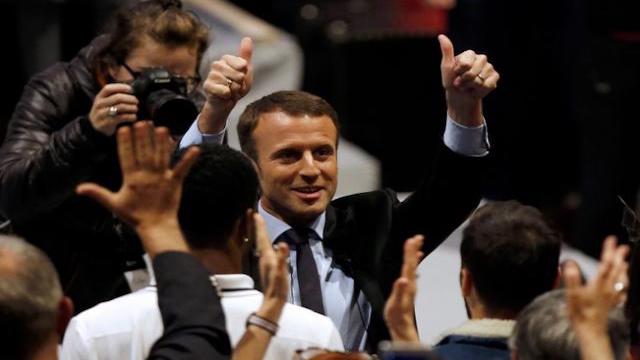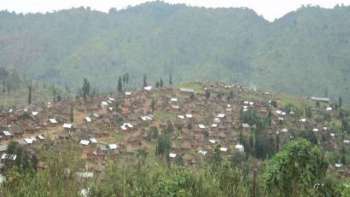French president Emmanuel Macron's La Republique En Marche (REM) or Republic on the Move, is projected to win an absolute majority in parliament on Sunday Jun 18, 2017 elections.
Exit polls show that REM, along with its ally Center-Right, MoDem, will secure up to 365 out of 577 seats in the assembly.
The win came amid worries of a low turnout, estimated at 42% of the eligible voters. Reacting to the results of the vote, French prime minister Edouard Philippe said the result gaves Macron's government a “clear majority” with “one mission: to act for France. Through this vote, the vast majority of French have chosen hope over anger, confidence over turning in on themselves." adding that
"This is an opportunity for France. One year ago no one would have imagined such a political renewal."
President Macron went further, in his speech, reacting to the results of the elections: "At the end of a long democratic battle, you have decided to give me a mendate ... it is an honor and a great responsibility... I will never forget you and I will care for you to make sure I deserve your confidence... my focus will be to appease, to renew the optimism, to bring back the winning spirit, to unite all men and women so that we may face the challenges in front of us and act... some of these challenges are opportunities... others are threats... I will fight with all my strengths against divisions that undermine us ... starting this evening and for the next five years...."
The win came a month after Emmanuel Macron, a 39-year-old former banker, became the youngest head of state in modern French history. He has an aggressive agenda to transform France into a country with solid political institutions and a strong economy and to make it a major player in the European Union.
Most of his members of parliament (MPs) are very young and inexperienced politicians. This may present both opportunities and challenges. The new MPs may be open to new promised changes in labor, healthcare system, and digital revolution and eco-systems. However they may, at the same time, experience a steep learning curve in figuring out the inner working of political institutions, which, in turn, may delay the implementation of the agenda.
















